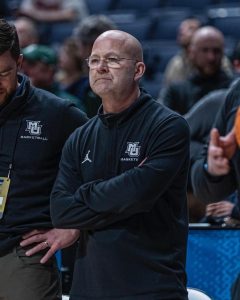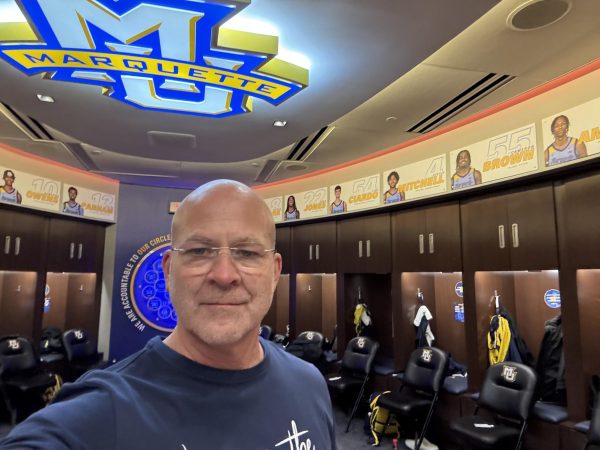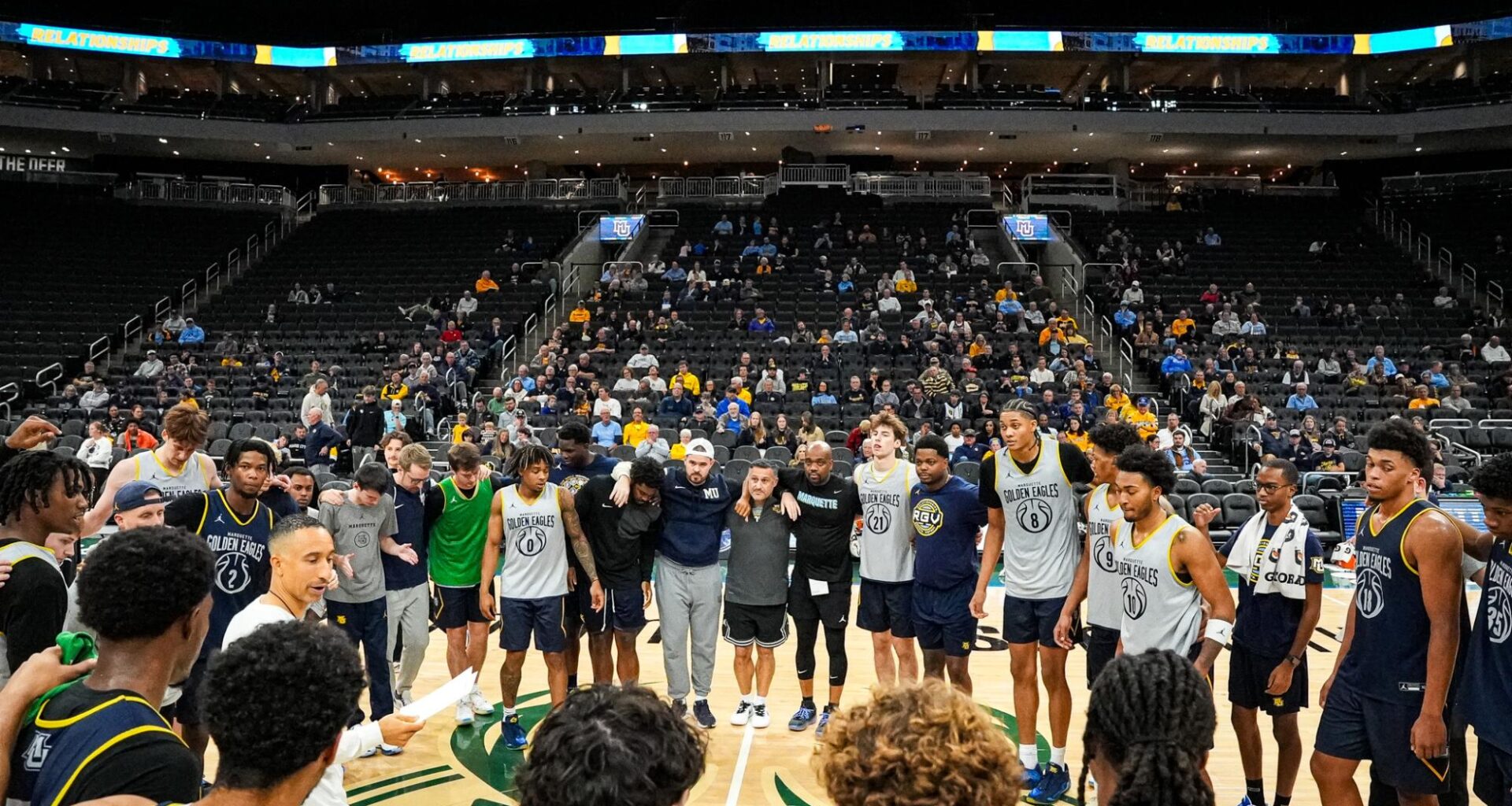 Russ Rausch began helping Marquette men’s basketball with “mental weight training” four years ago. (Photo courtesy of Russ Rausch)
Russ Rausch began helping Marquette men’s basketball with “mental weight training” four years ago. (Photo courtesy of Russ Rausch)
With under four minutes remaining in the Round of 32 and Marquette men’s basketball trailing Michigan State by two, head coach Shaka Smart spent 15 seconds of the media timeout not for drawing up plays, but for breathing.
In a game that determined who would advance to the Sweet 16, some may think Smart would have used every last second to talk strategy with his team.
But breathing was something that the Golden Eagles were used to.
And they still are.
In fact, the team has a mental skills coach working with them, teaching the players how to be present in the moment.
“We do it every single day, before practice, before a game, and for me, it takes me away from what I’m about to do,” senior forward Ben Gold said.
For the past four years, Russ Rausch has led the program through what he calls forms of “mental weight training,” or exercises that continuously build on each other, so that come game time, players can quickly revert to those skills in times of need. Marquette also uses the Vision Pursue app, which reinforces the same teachings, just with the ability to do it on their own time.
Rausch, founder of the Vision Pursue program, wants to help improve the mindsets of not just athletes, but also corporate leaders, employees.
He never studied psychology in college; in fact, he majored in accounting. However, after struggling with his own mental weaknesses during his job at a trading firm, he taught himself how to stop overthinking and was inspired to teach others how to discern their own emotional regulation.
Rausch first runs Marquette through breathing exercises to center the mind and internal state.
One way he teaches breathing is by taking slower, deeper breaths with longer exhales. The second way is through what he calls “power breaths,” which are when you breathe heavy — like you are running — while sitting still.
Once the breath is regulated, he moves on to teach focus meditation. This is a 5-10-minute practice where players select an object to stare at and focus their attention on.
“We’ve been learning over the summer how to improve our focus, because that will help us a lot more in the game,” Gold said. “When we’re locked in, everyone’s on the same page, everyone’s at a high level of focus.”
Gold admitted that it is a difficult practice to begin with, but over time, the team has been able to get to a point where they all can “lock in.”
“Coach even tested us the other day when we were sitting in the film room,” Gold said. “He made someone walk in midway through the focus meditation, to see if we would break our focus and check to see who walked in.”
Gold said that one or two people looked up, but it was a huge improvement from when they first started.
 Russ Rausch founded Vision Pursue to help improve the mindsets of athletes, corporate leaders and employees. (Photo courtesy of Russ Rausch)
Russ Rausch founded Vision Pursue to help improve the mindsets of athletes, corporate leaders and employees. (Photo courtesy of Russ Rausch)
Now, the breath is regulated, and the focus is there; the next step is the three-letter strategy Rausch uses to develop the meditation with Marquette even further.
And no, it’s not RGV: relationships, growth, victory — the core values essential to the Shaka Smart era — but ECC: expect, embrace and control.
Expect: Expecting challenges and challenging emotions, which helps people understand that their emotions are normal, as opposed to feeling overwhelmed or isolated.
Embrace: Embrace the emotion. Rather than suppressing the feelings, allowing them will be more beneficial for your performance.
Control: Control the controllables.
Now, does it make sense why Smart uses valuable media timeouts for, not Xs and Os, but breaths? Athletes learn to control their thinking. Rather than focusing on a missed 3-point shot, turn your focus towards making a great defensive block.
If Marquette trails by 12 points with four minutes to go in the second half, is there no way they can win? Or is victory possible?
“More important than the pre-practice or pre-game meditation is being able to come back to presence in the moment during the game, using your breathing, using different cues to come back to a level of consciousness to allow you to make the right next choice,” Smart said.
Out of media timeouts, when the buzzer sounds, the Golden Eagles head back to the court. But now, they have a steady breath, sharper focus and an ECC strategy in place for what comes next.
This story was written by Raquel Ruiz. She can be reached at [email protected] or on Twitter/X @RaquelRuizMU.

